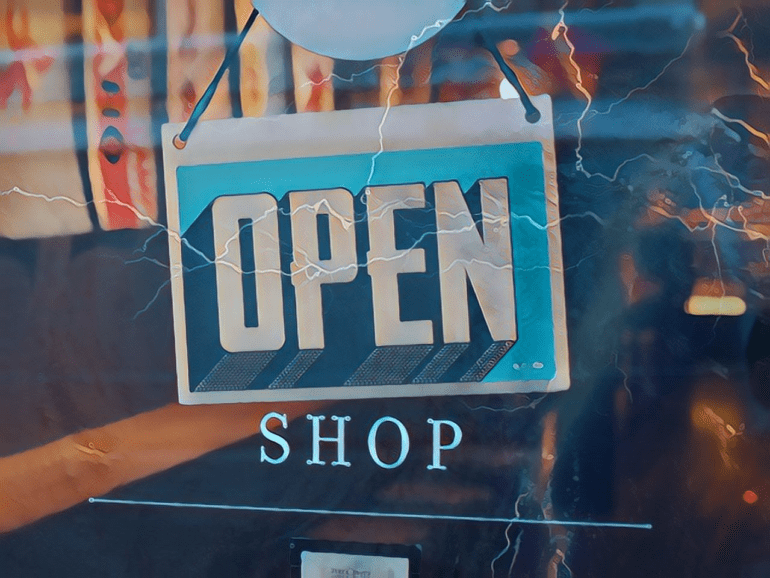Heightened inflation has increased pressure on SMEs in the UK following almost three years of challenging conditions.
Financing has become critical for a sector that continues to face problems with access to funding through traditional sources such as banks.
According to Nucleus Finance, 64% of retail, wholesale, and hospitality SMEs are concerned about access to finance in the new year. As economic conditions worsen, some are concerned that access will likely become more challenging.
Although the Autumn statement released earlier this month outlined some measures of business support, this access to finance may be critical to the success of many.
Many consumers have turned to By Now Pay Later (BNPL) providers to weather the cost of living storm. During the week of Black Friday Sales, BNPL sales were seen to jump 68%, and revenue from purchases reached record levels, despite high inflation.
Consumer-facing BNPL has been controversial, with many concerned that the scheme facilitates crippling debt. However, the emerging B2B BNPL sector could create a lifeline for SMEs struggling with cash flow.
BNPL for the B2B space
As the name suggests, business-facing BNPL offers businesses delayed payment terms, usually spanning over a few months with minimal interest payments.
For businesses stuck in a cycle of cashflow issues, these terms could be a lifeline.

“Cash flow is the main reason small businesses are applying for finance at the moment,” said Jo Malyon, founder of Blue Badger Financial Limited. “This is because of the increases in supply prices, utility bills, and inflation, as well as the difficulty they’re facing in passing on additional costs to customers.”
“There’s a definite sense of uncertainty in what’s going to happen in the market, and this, combined with the rising cost of borrowing, is causing SME appetite for finance to decrease. Small business owners are increasingly nervous about taking on any new liabilities.”
SME lender, Iwoca, found that the number of SMEs using their business-facing BNPL product, iwocaPay, had consistently risen by 15% month on month over the past year. In November 2022, usage increased by 246% from the previous year.
Integrated into the checkout of B2B clients, the product was launched after the company saw SMEs using their Flexi-loan product to pay suppliers and cover invoices. The pay later option can be selected by businesses at the point of sale for invoices between £150-£15,000.
Before Black Friday, iwoca announced a partnership with WooCommerce, integrating into the checkouts of clients using WooCommerce’s e-commerce software. They currently provide 37% of e-commerce platforms worldwide.
Balancing the risks with rewards
While the global B2B e-commerce sector is set to grow to $33 trillion by 2030, and B2B BNPL is already worth $1 trillion, using the service comes with risks. This is particularly prevalent in times of extreme economic pressure.
Consumer BNPL has fought criticism and statistics showing the rising bad debt and worsening economic conditions for clients. Some believe easy access to BNPL could encourage reckless spending, leading to increased user problems.
Nearly half of all BNPL users have made a late payment, with over 70% of customers admitting to overspending. Recent statistics showing increased usage over the Black Friday period, bringing sales up to new highs despite inflation, could translate into increased bad debt in the coming months.
In the case of iwoca’s iwocaPay, it could provide businesses offering the service to their B2B customers an ability to dramatically improve payment terms and boost sales amidst the challenging economic conditions. However, little has been indicated about the businesses at the receiving end of these terms.
The pandemic, along with the ongoing conflict between Russia and Ukraine and the effects of Liz Truss’s government, has battered the SME sector. Currently, UK SME debt is £20 billion more than the sector has previously seen, and balance sheets are straining.

“Businesses’ balance sheets are not in a great position..they’ve taken on debt, and they’ve taken on debt based on base rate lending,” said Sean Brophy, head of SME debt finance at Triple Point to Altfi. “Not only are their balance sheets not great, but their P&L will come under huge pressure because their interest payments will be way more than they would have expected them to be.”
The FSB’s small business index showed that loan approval rates for SMEs had reached an all-time low, resulting in a need for increased access to alternative means of credit. BNPL could be an easy and flexible option, catering to the underserved.
While the risks are the same for consumers using BNPL, it could help SMEs with liquidity issues and boost sales, both essential to the continued survival of small businesses. The consensus is that it could lead to increased growth of SMEs and improved cash flow, which is essential to improving economic conditions.


